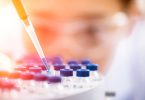Exploring the Microbiome: How Bacteria Influence Our Health
The human body is home to trillions of microorganisms, including bacteria, viruses, fungi, and archaea. These microorganisms, collectively known as the microbiome, are found in various parts of the body, including the skin, mouth, lungs, and, most notably, the gastrointestinal (GI) tract. While many people still associate bacteria with illness, modern science has revealed that a vast majority of these microorganisms are not only harmless but play a critical role in maintaining human health. In fact, the microbiome is essential for numerous bodily functions, such as digestion, immune system regulation, and even mental health.
In this article, we will explore the microbiome, its composition, how bacteria influence human health, and the potential implications for diseases and treatments. We will also examine how lifestyle, diet, and modern medicine are shaping the microbiome, offering insights into how maintaining a healthy microbiome can benefit overall well-being.
1. What Is the Microbiome?
The term microbiome refers to the entire collection of microorganisms living in and on our bodies, as well as their genetic material. The most abundant and diverse microbiome is located in the gut, particularly in the large intestine, but smaller populations of microbes reside on the skin, in the mouth, and even in the lungs.
The microbiome’s composition can vary significantly between individuals, influenced by factors such as genetics, diet, environment, and lifestyle. Recent studies estimate that the human microbiome contains around 100 trillion microbial cells, outnumbering human cells by a factor of ten. These microorganisms, which include bacteria, viruses, fungi, and archaea, are involved in a variety of biological processes that are essential for maintaining health and homeostasis.
2. How the Microbiome Affects Health
The microbiome’s influence on human health is multifaceted, involving several bodily systems that work together to regulate metabolism, immune response, and even mental health. Bacteria in the gut, in particular, have profound effects on digestive processes, immune system function, and the synthesis of key nutrients. Let’s explore some of the ways that these microorganisms impact our health.
2.1 Digestion and Nutrient Absorption
One of the most well-known roles of the microbiome is its involvement in digestion. While the human digestive system can break down many nutrients on its own, there are certain food components—especially complex carbohydrates and fiber—that the body cannot fully digest. This is where the microbiome comes in. Beneficial bacteria in the gut, such as Bacteroides and Firmicutes, help to break down these substances into simpler molecules like short-chain fatty acids (SCFAs), which are then absorbed and utilized by the body.
In addition to digesting fiber and producing SCFAs, the microbiome also helps to synthesize certain vitamins, including B vitamins (such as B12 and folate) and vitamin K. These vitamins are essential for numerous bodily functions, including red blood cell production, immune function, and blood clotting.
2.2 Immune System Regulation
The microbiome also plays a critical role in immune system regulation. In fact, about 70% of the immune system is located in the gut. The beneficial bacteria in the microbiome interact with immune cells in the intestines, helping to train the immune system to distinguish between harmful pathogens and harmless substances, such as food or beneficial microbes.
By regulating the immune system, the microbiome contributes to both defense and tolerance. For instance, a balanced microbiome can prevent the immune system from overreacting to non-harmful stimuli, which can reduce the risk of autoimmune diseases, allergies, and inflammation. Additionally, some gut bacteria are involved in producing antimicrobial peptides that help fight infections.
2.3 The Gut-Brain Axis: Mental Health and Behavior
The relationship between the gut and the brain, known as the gut-brain axis, is another fascinating aspect of the microbiome. Emerging research has shown that the gut microbiome is closely connected to mental health and emotional well-being. The gut and brain communicate bidirectionally through neural pathways (such as the vagus nerve), immune signaling, and hormones. The bacteria in the gut influence the production of neurotransmitters, including serotonin and dopamine, which play key roles in regulating mood, anxiety, and depression.
In fact, studies have found that people with conditions like irritable bowel syndrome (IBS), anxiety, and depression often have altered microbiomes. This has led to the hypothesis that an imbalance in the gut microbiome, known as dysbiosis, may contribute to the development of mental health disorders. Interestingly, some treatments aimed at restoring a healthy microbiome, such as probiotics (supplements that contain beneficial bacteria), have shown promise in improving mood and mental health.
3. The Impact of Diet and Lifestyle on the Microbiome
The composition and health of the microbiome are not fixed; they can be influenced by a variety of factors, including diet, lifestyle, and medication. The food we eat plays a direct role in shaping the diversity and composition of gut bacteria.
3.1 The Role of Diet
A diet rich in fiber—found in fruits, vegetables, whole grains, and legumes—promotes the growth of beneficial gut bacteria, which thrive on fiber and produce beneficial metabolites like SCFAs. On the other hand, a diet high in saturated fats, refined sugars, and processed foods may promote the growth of less beneficial bacteria and lead to an imbalance in the microbiome. This imbalance, known as dysbiosis, has been linked to various health issues, including obesity, diabetes, heart disease, and inflammatory bowel diseases (IBD) like Crohn’s disease and ulcerative colitis.
Furthermore, the Mediterranean diet, which emphasizes plant-based foods, healthy fats (like olive oil), and lean proteins, has been shown to support a healthy, diverse microbiome and reduce the risk of chronic diseases. Probiotic-rich foods, such as yogurt, kimchi, and sauerkraut, can also contribute to maintaining a healthy microbiome by introducing beneficial bacteria to the gut.
3.2 The Influence of Lifestyle
In addition to diet, other lifestyle factors also impact the microbiome. Regular physical activity has been shown to increase the diversity of gut bacteria, which is generally considered a marker of a healthy microbiome. Stress, on the other hand, can negatively affect the gut microbiome, potentially leading to gastrointestinal issues and dysbiosis.
Sleep patterns also play a role in microbiome health. Studies suggest that poor sleep or disruptions to the circadian rhythm (the body’s natural sleep-wake cycle) can alter the balance of gut bacteria, which in turn may affect metabolism, immune function, and mood.
3.3 The Effects of Antibiotics and Medications
Antibiotics, while essential for treating bacterial infections, can have unintended consequences on the microbiome. These medications can disrupt the balance of bacteria in the gut by killing off both harmful and beneficial microbes. Overuse of antibiotics has been linked to conditions such as antibiotic-associated diarrhea, Clostridium difficile infections, and increased susceptibility to other infections. It can also contribute to the development of antibiotic-resistant bacteria, a major public health concern.
Researchers are now exploring strategies to minimize the impact of antibiotics on the microbiome, such as the use of probiotics to restore healthy bacteria after antibiotic treatment. Additionally, newer approaches in medicine aim to target specific pathogens without disrupting the entire microbiome.
4. The Role of the Microbiome in Disease Prevention and Treatment
As we learn more about the microbiome, scientists are beginning to recognize its potential in disease prevention and treatment. A balanced microbiome is essential for maintaining health, while dysbiosis can contribute to the onset of various diseases. Understanding the microbiome’s role in disease has led to the development of new therapeutic approaches, including:
4.1 Probiotics and Prebiotics
Probiotics are live microorganisms that confer health benefits when consumed in adequate amounts. These beneficial bacteria can help restore balance to the microbiome, especially after antibiotics or other disruptions. Probiotics are being studied for their potential to prevent and treat various conditions, including gastrointestinal disorders, allergies, inflammatory diseases, and even mental health conditions.
Prebiotics, on the other hand, are non-digestible fibers that promote the growth of beneficial bacteria in the gut. Prebiotic-rich foods include garlic, onions, bananas, and asparagus. When combined with probiotics, prebiotics help to nourish and sustain beneficial bacteria, offering a complementary approach to microbiome health.
4.2 Fecal Microbiota Transplantation (FMT)
In severe cases of dysbiosis, such as in individuals with recurrent Clostridium difficile infections, fecal microbiota transplantation (FMT) is being used as a treatment. FMT involves transferring fecal material from a healthy donor to a patient’s intestines to restore a balanced microbiome. Research has shown that FMT can be highly effective in treating chronic gut infections and may hold promise for other conditions, such as obesity, IBD, and even metabolic disorders.
5. Conclusion: The Future of Microbiome Research
The human microbiome is an essential and intricate ecosystem that profoundly influences our health. From aiding in digestion to regulating the immune system and influencing mental health, the microbiome’s role in maintaining well-being is vast and complex. As research into the microbiome continues to evolve, scientists are uncovering new insights into how bacteria shape our bodies and contribute to disease prevention and treatment.
Maintaining a healthy, balanced microbiome through diet, lifestyle, and judicious use of antibiotics will be key to promoting overall health. As we gain a deeper understanding of the microbiome, personalized medicine and microbiome-based therapies may become powerful tools in the treatment of diseases, offering new hope for managing and even preventing a wide array of health conditions.






